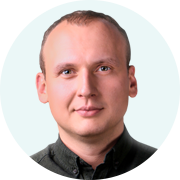10 Best SaaS Development Companies

Software-as-a-Service has become the standard delivery model for business applications, prized for its predictable costs, seamless updates, and built-in scalability. Yet turning a raw concept into a secure, multi-tenant platform still demands deep cloud expertise, rock-solid DevOps, and a product mindset. The right SaaS development company can shorten time-to-market, future-proof the architecture, and guide you past the pitfalls of compliance and ongoing maintenance.
To help founders and product leaders choose wisely, we’ve reviewed dozens of vendors and narrowed the field to ten firms that consistently ship reliable, high-growth SaaS products in 2025. We considered engineering culture, tech-stack versatility, track record with complex deployments, and ability to support clients well beyond the MVP stage. After the list, you’ll find a brief framework for evaluating potential partners against your own project goals and constraints.
Top 10 SaaS Development Companies in 2025
Selecting partners for cloud products is harder than ever. The bar for security and uptime keeps rising, AI-powered features are quickly becoming table stakes, and investors expect a clear plan to scale without rewriting the codebase every two years. To assemble this year’s list, we reviewed dozens of SaaS development companies on five dimensions that matter most in 2025:
- Delivery record – shipped, revenue-generating platforms rather than proofs of concept.
- Architecture maturity – multi-tenant designs, observability, and automated CI/CD pipelines that withstand growth and audits.
- Domain depth – experience in regulated or niche industries where compliance and data modeling get complicated.
- Team resilience – sustainable DevOps and support practices, not just sprint-based development.
- Client feedback – transparency, documentation quality, and ability to guide non-technical stakeholders through trade-offs.
Every company here scored well across those areas, yet each approaches product development a little differently. Use the snapshots that follow as a starting point, then weigh them against your own roadmap, budget, and in-house capabilities.
1. WiserBrand
Founded in 2015 and headquartered in New York, WiserBrand combines product-strategy consulting with full-cycle engineering to deliver cloud-native SaaS platforms. The team emphasizes test-driven development, infrastructure-as-code on AWS and Azure, and secure multi-tenant architectures that stand up to HIPAA, PCI-DSS, and GDPR requirements. Clients range from U.S. retail and logistics startups to mid-market healthcare and fintech firms looking to modernize legacy tools.
Company size
100+ employees spread across the U.S. and Argentina, with cross-functional squads covering discovery, UI/UX, backend, DevOps, and QA.
Main focus
- Custom SaaS product development and modernization
- AI-driven business process automation
- eCommerce and marketplace platforms
- Ongoing DevOps, SRE, and 24/7 customer support for live products
2. Space-O Technologies
Founded in 2010 in Ahmedabad, India, Space-O Technologies has grown from a mobile-app studio into a full-cycle SaaS application development company that also delivers enterprise software and AI-powered solutions. ISO-9001 and ISO-27001 certifications underpin its Agile, DevSecOps culture, while a Mesa, Arizona office provides a North-American point of contact. To date, the firm has shipped more than 4,400 digital products for 1,200+ clients in 40 countries.
Company size
Approximately 250 professionals, including 140+ full-stack developers in India and a lean client-services team in the United States.
Main focus
- Multi-tenant SaaS product architecture and cloud migration
- Cross-platform mobile & web development (Swift, Kotlin, Flutter, React, Node.js)
- AI/ML integration and data analytics
- Core verticals: healthcare, fintech, logistics, education, and retail
3. ScienceSoft
Founded in 1989 and headquartered in McKinney, Texas, ScienceSoft is a global IT consulting and software development company with extensive experience in SaaS product engineering. Over the years, ScienceSoft has evolved into a trusted technology partner for enterprises and software product companies, delivering secure, scalable, and high-performing SaaS platforms for regulated and data-intensive industries.
With ISO 27001–aligned processes and decades of experience in cloud architecture, ScienceSoft designs and modernizes multi-tenant SaaS solutions, migrates legacy products to the cloud, and supports continuous delivery and DevOps for mission-critical systems. The company has strong domain expertise in healthcare and financial services, where it builds HIPAA-compliant medical platforms, digital banking systems, payment solutions, fraud detection tools, and analytics-driven SaaS products.
Company size
750+ full-time professionals worldwide, including software engineers, cloud architects, data and AI specialists, DevOps engineers, and QA experts.
Main focus
- End-to-end SaaS product development and modernization
- Cloud migration and multi-tenant architecture design
- AI/ML, data analytics, and intelligent automation
- Secure software engineering for regulated industries
- Core verticals: healthcare, BFSI, manufacturing, retail, logistics, and telecom
4. Orases
Founded in 2000 and headquartered in Frederick, Maryland, Orases is a privately held U.S.–based firm that blends product strategy, UX design, and engineering to deliver custom web and SaaS solutions. With a Clutch 5-star rating and five consecutive Inc. 5000 appearances, the team emphasizes Agile delivery, DevSecOps, and 100% on-shore coding — positioning itself as a dependable partner for complex, multi-tenant platforms and high-compliance environments.
Company size
100+ employees, including more than 30 dedicated software engineers, designers, and QA specialists working out of Frederick, Washington D.C., Chicago, and New York offices.
Main focus
- Custom SaaS product architecture, integration, and modernization
- Web & mobile app development, UI/UX, and ongoing support
- AI & machine-learning consulting, data strategy, and infrastructure services
- Core verticals: healthcare, fintech, logistics, manufacturing, nonprofit, sports, and professional services
5. Netguru
Launched in Poznań (Poland) in 2008, Netguru has grown into a certified B Corp™ digital consultancy that delivers cloud-native SaaS platforms, mobile apps, and AI solutions for brands such as UBS, Volkswagen, and OLX. ISO-27001 processes and an in-house R&D hub let the team handle everything from product discovery and design sprints to multi-tenant architecture and 24/7 DevOps.
Company size
700+ specialists.
Main focus
- End-to-end SaaS product development on AWS, GCP, Azure
- Staff-augmentation pods for scale-ups and enterprises
- Gen-AI and data-analytics integrations
- Core verticals: fintech, healthcare, logistics, retail, and sustainability tech
6. BairesDev
Headquartered in San Francisco and operating fully remote across 50+ countries, BairesDev is a near-shore engineering powerhouse known for supplying the “top 1%” of Latin-American talent to North-American and European clients. Its 4,000-strong delivery organization has completed 1,200+ projects, including SaaS re-platforming for Google and predictive-marketing engines for Nextroll. In March 2025 the firm earned a CIO 100 Award for an internal machine-learning platform that cut employee churn by half.
Company size
3000+ employees.
Main focus
- Scalable SaaS platform engineering & cloud migration
- Dedicated squads and staff augmentation (Agile / DevSecOps)
- AI/ML solutions and data engineering
- Verticals: healthcare & life-sciences, fintech, ed-tech, media, logistics
7. Leanware
Leanware is a Bogotá- and Miami-based boutique SaaS development agency founded in 2019. The firm positions itself as a long-term product partner for U.S. startups, providing discovery workshops, UX/UI, and full-stack engineering backed by near-shore time-zone alignment. Client feedback on Clutch highlights proactive code-quality checks and revenue-boosting UX improvements.
Company size
50+ employees distributed across Colombia and the U.S.
Main focus
- Green-field SaaS MVPs and iterative product scaling
- Cloud infrastructure management on AWS, Azure, GCP
- API design, data-engineering, and AI feature pilots
- Verticals: fintech, health-tech, logistics, and eCommerce
8. Integrio Systems
Operating since 2000 with hubs in Vancouver, Sunnyvale, Kraków, and Kharkiv, Integrio Systems blends North-American product management with Eastern-European engineering depth. The company builds and modernizes enterprise-grade SaaS, AI/ML, and IoT platforms; long-running engagements include 123Signup (event-management SaaS) and Kofein ERP.
Company size
150+ employees worldwide.
Main focus
- Custom SaaS product development & legacy modernization
- AI/ML prototyping and prompt-engineering services
- Dedicated delivery centers and managed DevOps/SRE
- Verticals: manufacturing, transportation, fitness, and professional services
9. Yalantis
With 15 + years in the market and engineering hubs in Warsaw, Kyiv, and Limassol, Yalantis provides full-cycle SaaS development for mid-market and enterprise clients. The firm staffs 400+ engineers and offers a ready playbook for secure, multi-tenant architecture, subscription analytics, and role-based access controls — making it a go-to partner for regulated fintech and health-tech products.
Company size
300+ employees + IT experts.
Main focus
- SaaS & IoT platform engineering with focus on multi-tenant isolation
- Dedicated data-engineering and BI practices
- Staff-augmentation and managed product teams
- Verticals: fintech, healthcare, logistics/mobility, and prop-tech
10. DockYard
Boston-based DockYard (founded 2010) is best known in the developer community for championing Elixir and Phoenix — technologies built for high-concurrency SaaS applications. Today the 100%-remote studio pairs product strategy and UX research with AI-driven engineering for clients like Netflix, Apple, and Mariana Tek.
Company size
150+ employees and 25 core consultants spread across five countries.
Main focus
- Complex, real-time SaaS platforms using Elixir/Phoenix & LiveView
- AI/ML feature integration and ROI-driven product strategy
- Progressive Web App and cross-platform mobile development
- Verticals: media/streaming, fintech, tele-health, and fitness tech
How to Choose the Best SaaS Development Company
Selecting a partner to build your product is as much a risk-management exercise as it is a technical decision. The right team will accelerate launches, safeguard sensitive data, and keep operating costs predictable; the wrong one can lock you into fragile architecture and ballooning maintenance bills. Use the criteria below as a practical checklist, tailoring each point to your roadmap, budget, and regulatory landscape.
Start with Your Roadmap
Document the features, user loads, and compliance milestones you must hit in the next 6–12 months, then share that draft during discovery calls. How a vendor challenges assumptions or refines scope in these early conversations is often a better indicator of fit than any portfolio slide.
Evaluate Architectural Competence
Ask each candidate to white-board a comparable multi-tenant system they’ve shipped: data isolation, CI/CD pipelines, observability tooling, and rollout strategy. Look for metrics and diagrams that would proof that their approach can handle scale without frequent rewrites.
Verify Security and Compliance Track Record
If your SaaS handles healthcare, finance, or other regulated data, require evidence of past HIPAA, PCI-DSS, SOC 2, or ISO 27001 audits. Mature teams will have documented policies, scheduled penetration tests, and a named security lead you can speak with.
Assess Product-Design & Discovery Capability
A clean codebase means little if onboarding is confusing. Seek partners that field cross-functional squads, who iterate together and track engagement metrics such as activation or retention, not just sprint velocity.
Scrutinize Post-Launch Support
Continuous delivery, automated monitoring, and well-defined on-call rotations show a company’s ability to keep a platform healthy once real users arrive. Clarify ownership of incident response, SLA reporting, and version roll-outs before you sign.
Consider Cost Versus Continuity
Near-shore or blended teams can stretch budgets, but high turnover erodes product knowledge. Ask about employee retention, backup staffing plans, and whether you’ll have direct access to the same senior engineers throughout the engagement.
Final Words
Building a successful SaaS product is a long-term commitment to secure architecture, continuous delivery, and user-centred iteration. When you find a partner who can de-risk those areas and communicate trade-offs clearly, you’ll have a solid foundation for shipping features faster, delighting users, and scaling without constant rework.
FAQ
We reviewed dozens of vendors and scored them across delivery record, architecture maturity, domain depth, team resilience, and client feedback to identify firms that consistently ship secure, scalable SaaS products.
WiserBrand offers product-strategy consulting and full-cycle engineering with an emphasis on test-driven development, infrastructure-as-code on AWS and Azure, secure multi-tenant architectures, and ongoing DevOps and 24/7 support.
Start by documenting your 6–12 month roadmap and use discovery calls to see how vendors refine scope, then validate their architectural approach, security track record, and post-launch support plans.
Yes; many firms on the list include AI/ML and Gen-AI integrations, data engineering, and prototyping services as part of their SaaS offerings.
Require evidence of past audits or certifications like HIPAA, PCI-DSS, SOC 2, or ISO 27001, plus documented security policies, scheduled penetration testing, and a named security lead you can speak with.
